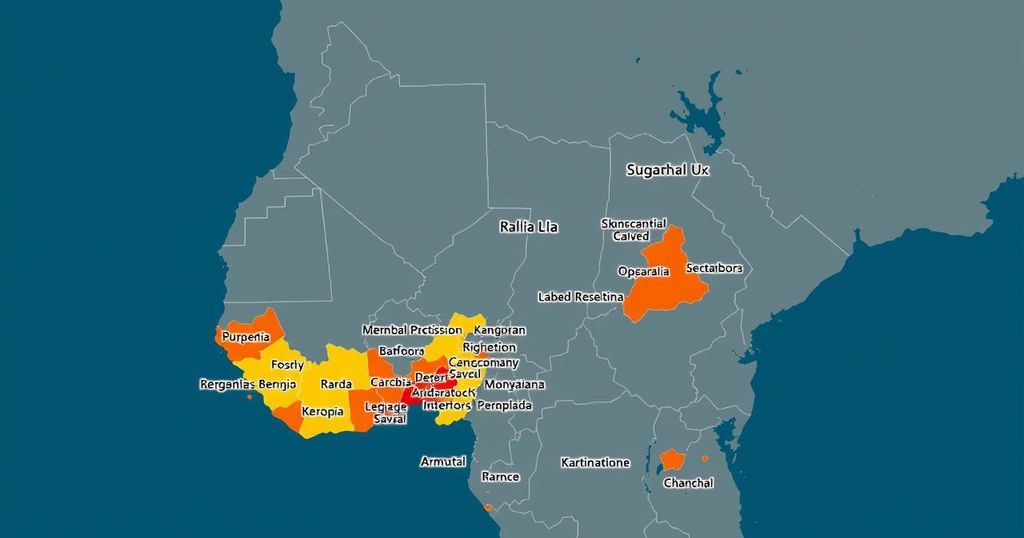The International NGO Safety Organisation (INSO) documented 114 incidents involving NGOs in September 2024, indicating a minor decline primarily due to reduced incidents in the DRC and Nigeria. Severe risks persist, illustrated by fatal incidents in Ukraine and DRC, alongside increasing challenges in Somalia, Sudan, Mozambique, and the Middle East, particularly in the West Bank and Gaza.
In September 2024, the International NGO Safety Organisation (INSO) reported a total of 114 incidents affecting non-governmental organization (NGO) operations, reflecting a modest decrease compared to previous months. This reduction can be attributed, in part, to a downward trend in incident volumes, particularly within the Democratic Republic of the Congo (DRC) and Nigeria. However, the loss of lives in Ukraine and the DRC underscores the persistent and context-specific risks encountered by humanitarian workers. In Nigeria, significant flooding in the northeast region appears to have contributed to a reduction in organized armed group (OAG) and criminal activities impacting NGO personnel. Meanwhile, operations by OAGs and governmental entities against them have hindered access to vital areas. In Somalia, an improvised explosive device (IED) planted by Al-Shabaab resulted in injuries to two civilians at an NGO project site in Jubaland, emphasizing the dangers NGOs face in conflict-affected locales. In Sudan, the prevailing situation reveals escalating interactions between the Rapid Support Forces (RSF) and NGO staff, as evidenced by multiple detentions that highlight a growing trend of interference with humanitarian initiatives. Mozambique has also observed its own challenges, with government measures against the Islamic State-Mozambique (IS-M) resulting in new access restrictions, while reports indicate IS-M members regrouping in the southern region. In the broader Middle Eastern context, attention has recently pivoted to Lebanon. Nevertheless, there is a concerning escalation of violence in the West Bank, compounded by an ongoing major military operation by Israeli forces in Gaza City.
The report issued by INSO reflects the ongoing challenges faced by NGOs operating in volatile regions. Analyzing incidents recorded in September 2024 provides insights into the safety and security issues that humanitarian workers encounter globally. Specifically, the reported reductions in incidents from the DRC and Nigeria may suggest some temporary relief, yet the emergence of violence in other regions, such as Sudan and Somalia, indicates a complex security landscape where humanitarian efforts are often impeded. Furthermore, the situation in the Middle East, particularly around Israel-Palestine dynamics, presents additional layers of risk for NGOs engaged in relief work.
In summary, the IFNO report indicates a slight decline in recorded incidents impacting NGOs, bolstered by reduced activity in Nigeria and the DRC. However, the persistently hazardous environment characterized by fatal incidents in Ukraine and the DRC, along with rising tensions in Sudan and the Middle East, serves as a stark reminder of the multifaceted risks that humanitarian organizations continue to navigate in their efforts to deliver aid.
Original Source: reliefweb.int






